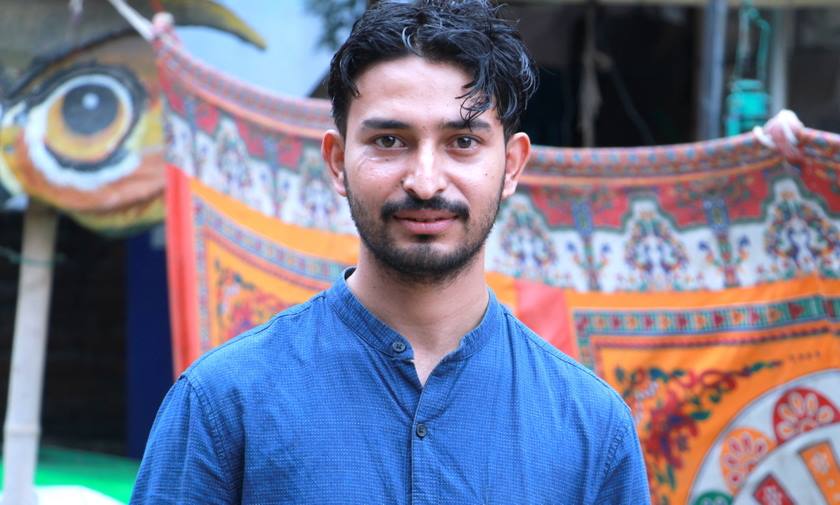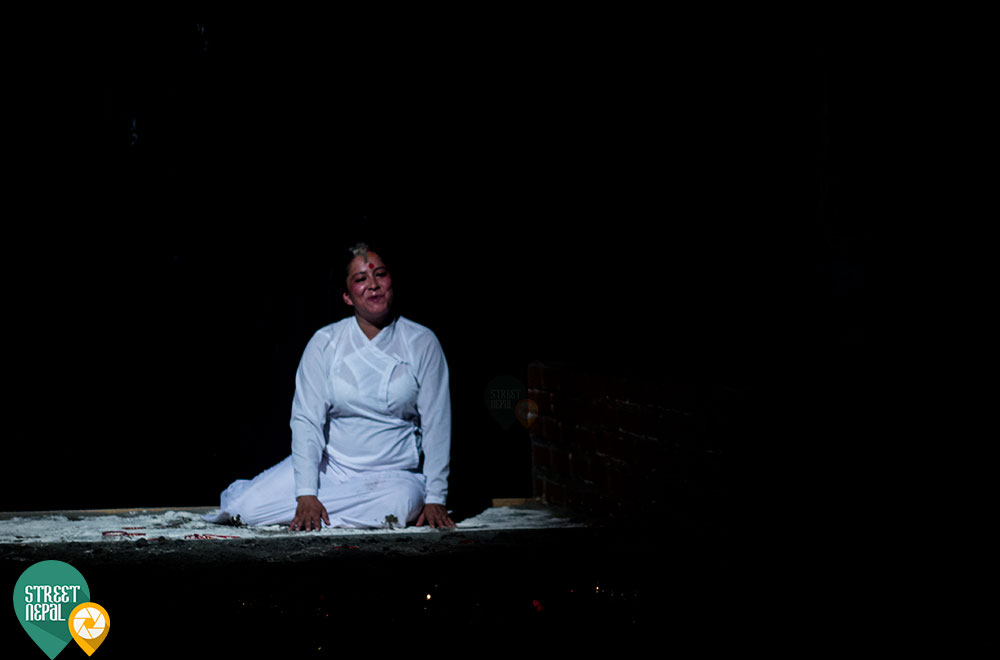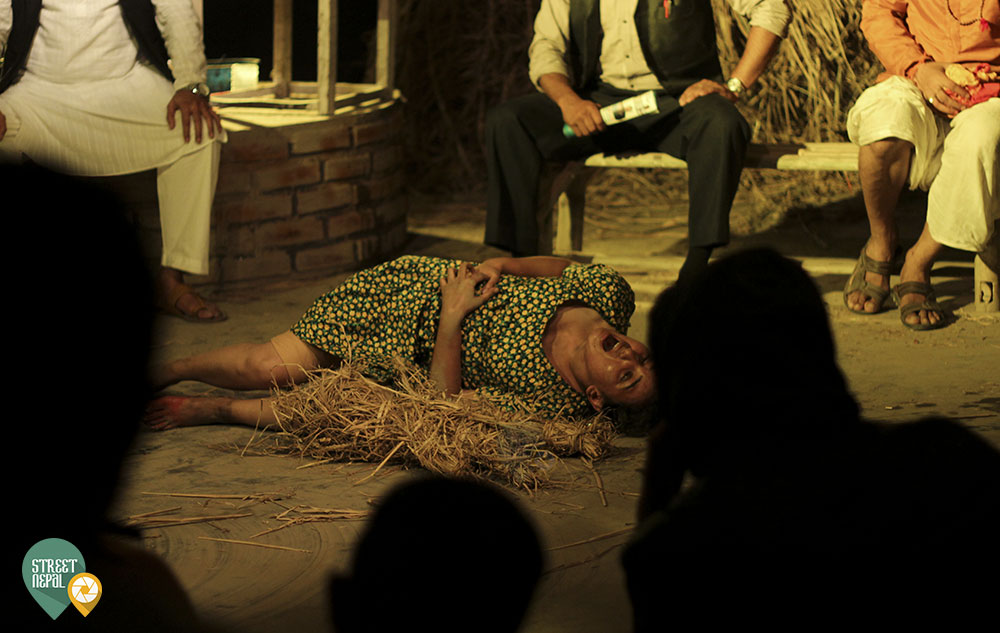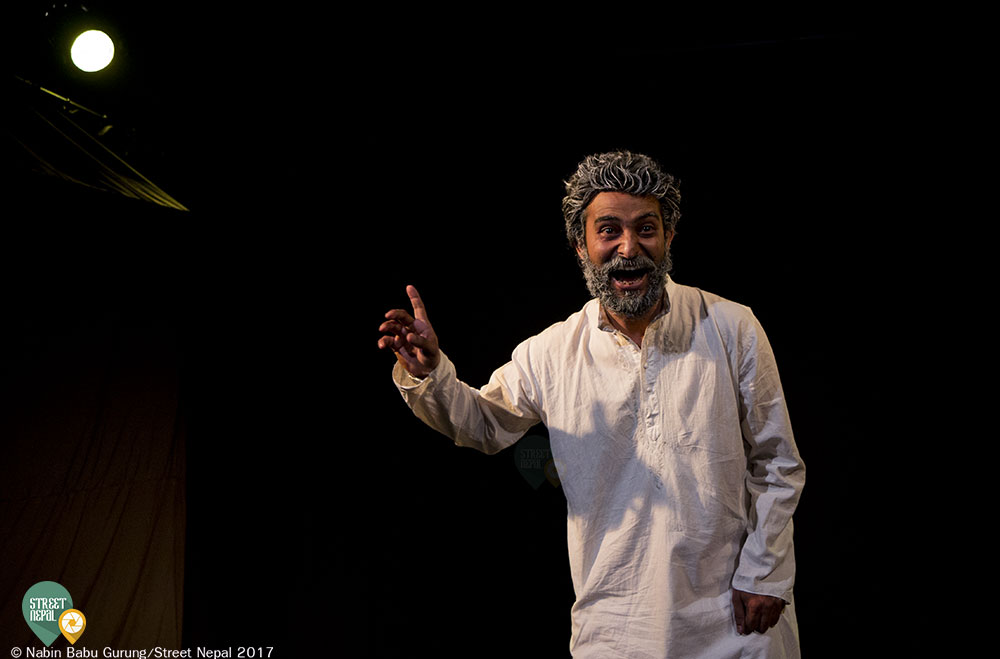SOCIAL CHANGEMAKERS BLOG SERIES ISSUE No.3: Sulakshyan Bharati, Theater Activist, Mandala Theatre- Dramatists Should be Attentive Towards Social Issues
Theater speaks the voice of human emotion. It reflects the impact of society on the arts and presents it in front of an audiences through different characters. It also generates a healthy debate on several issues. Sulakshyan Bharati, theater activist, writer, actor, and director, is one of the prominent theater artists of this time, involved with Mandala Theater. With his back to back 4 hit dramas, he has been in the limelight of the theatrical debate. More interestingly, he has been focusing on the several social issues like women’s equality, Bokshi Pratha, the old age crisis caused by migration and others. He not only delivers the social issues, but brings the audience to question the basic foundations of these issues. Talking to The Catalyst, Bharati shares his process of selecting issues and its presentation them.
How do you want to introduce yourself?
I am simply an actor. Sometimes I also write. Nothing more.
How did you come to the field of drama and theater?
I came unknowingly. I actually wanted to be an actor in films. I also did some modeling. To fulfill my childhood dreams, I joined dance classes. Then later coincidently, I came to the theater and never went back. I call it journey from watching a drama series to the theater.
In the recent times, you have been giving back to back hit dramas, most of them focusing on the never brought up social issues. Why do you do so? What is your motivation?
I don’t think I have written on social issues. I actually try to bring society into drama. The characters I chose are from our society. Let me tell you one thing, each and every story we choose comes from society. I try to give a perception on a social issue, so that people can interact and find themselves the path towards social change. I love to question everything, so my plays are all about questioning social structures.
In Bokshi Ko Ghar (The House of Witch), you told the story of a woman who is blamed for being a witch at home and killing her own husband. She is forced to leave the house and live a terrible life. How did you decide to write on this issue?
I had been thinking to do this when I was following various news articles on Bokshi. I used to think how can a person can be a Bokshi and kill her husband and child. Why are women compelled to leave the house? Does the witch have a gender or is it our society which declares so? These questions really hit me hard. I personally did a lot of research won whether there is any Bokshi or ghost or not. I tried reading some interviews on this, but nobody could provide me with satisfactory answers. As I could not find the answer, I tried to go to the theater to tell her perspective. I wrote only when I felt I should do it.
How optimistic are you towards the impact of this kind of drama?
I am optimistic. Although, it may not change the mindset of the masses, it somehow changes the people’s perspective.

If I can change one person’s perception towards a social issue, I count that as a success because that person’s awareness can help bring about change in fighting discrimination within his or her family or community. During the show of Bokshi ko Ghar, I remember one girl, who was going abroad but decided not to at the end. Her mother was also accused of being Bokshi. The treatment of the society was so bad that she wanted to escape by flying abroad. But the drama changed her perception and she was ready to fight and stand up for herself. She thought she could never escape, so fighting back was the only option.
Any such incidents with other dramas? Like you covered the migration issue from an abandoned old man in Saledo, you covered a woman’s story who wanted to have a baby without marriage in Milk Tea. How were people’s reaction to these dramas?
People are appreciative especially after Milk Tea. After the show, many women came to me to thank me for raising that issue. There was one woman, who had the same life experiencee and who came to praise my work. There could be many women like her in our country. Maybe they fear to come out collectively and in my drama found their voice.
Do you think dramas can change the society? How?
Yes, they can. It can give a new insight to the audience. If you see Latiko Chhoro (The Son of a Dumb), for example, you will surely question to yourself ‘what being a man is?’ You will remember your every deed and know how that a wrong deed could kill someone emotionally. And the other hand, it shows the courage of a single mother, who is raped several times but still gives birth to a child.
I remember one thing. It could be the coincidence but when we started showing Bokshi Ko Ghar in theater, the next day there was news coverage of Bokshi on the front page of Kantipur. Other news related to the issue of witchery also came afterwards. The more people see this kind of news, the more it compels them to think about what is going wrong in society. It at least makes them question their perception on an issue.
Milk Tea doesn’t cover a big social issue, but it makes people think. For example, about the Surrogate Mother’. Since men are using women’s wombs to get a baby nowadays, then why can’t a woman desire to have her own baby without marrying anyone?
Dramas don't bring social change, but it can be a contributor to change.
What have been things that have disappointed you in the process? Do you think the message of your drama is delivered to the intended audience?
In my most of the dramas, I mostly question society. So, anyone leading the society now is the intended audience. They could be politicians, civil society, and common people. They should know how a social problem or taboo affects the particular members of the society. We as a theater persons, try to say these things through our characters. But the sad thing is, those responsible people are not so regular in the theater. And to bring them here, public pressure is a must.
I think in our day and age, every drama written on a social issue should create a vibration but people are so calm as if nothing is happening around. This reflects the indifference of the society towards these taboos in a way. People know everything, but they fear to speak. And again, when a drama tries to speak, they become silent. A collective voice is lacking every time.
But let’s create a wrong impression. I am quite optimistic towards the effect of my work. Because if not today, then drama will speak tomorrow.
What are the other social issues you think Nepali dramas should be written on?
I do not think of writing about any issue at first. It is the external factor like news that encourages me to meditate on the issue. However, I think dramatists and theater activists should be conscious of human emotion and be attentive towards social issues. They should try to capture everyday happenings that could pose a question about the overall basic foundations of society. They should visit different segments in society and try to bring real people in their characters.
You and your wife both are in theater. Both of you worked together in most of these dramas. How do you think you personally have changed working on these female character-driven dramas?
Yes, we have worked together in most of the cases. We are not husband and wife when it comes to the theater. I respect her work and she respects mine as well. Once change of myself that I find is that I am no more a typical husband, who wants everything to be done by his wife. I do my works myself even in my house. I wash my clothes myself. I cook. I take care of our baby.
Looking at the social structure, I am proudly saying that as a male I do my chores myself. This should never be my answer in the first place, because those chores were not assigned to my wife by birth in any case. We males should really think of being independent ourselves. I lament that I am learning this after so many years.
Any suggestions for the new comers in the theater?
I love to see several new comers in the theater. This is a good sign. Theater teaches them the value of life and it will ultimately benefit the society. Only one suggestion I can give them is that they should be honest about everything they do.


